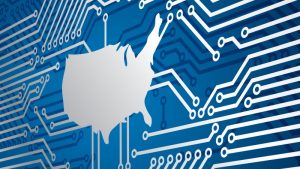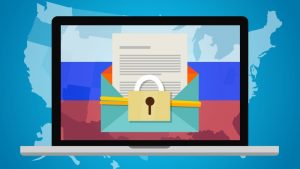ODNI, DoJ, FBI, DHS Declare Election Interference ‘Top Priority’
The Department of Homeland Security (DHS), the Federal Bureau of Investigation (FBI), Facebook, and Microsoft hosted a joint briefing on Friday, Aug. 24, for the National Association of Secretaries of State (NASS) and the National Association of State Election Directors (NASED) regarding “actions being taken to combat malicious interference operations.”
The Department of Homeland Security on Aug. 13-15 hosted “Tabletop the Vote 2018: DHS’ National Election Cyber Exercise,” inviting vendors and Federal, state and local election officials to participate in election security preparation. The three-day event offered a scenario based on real-world events and risks.
A report issued May 31 by the New America Foundation’s Cybersecurity Initiative recommends that the Federal government consider three “priority efforts” to help state governments advance their own efforts to improve cybersecurity, including “designating specific cybersecurity funding that is linked to national priorities.”
Of all the concerns keeping Governors’ Homeland Security Advisors up at night, cybersecurity ranks top of the list.
The Department of Homeland Security’s (DHS) rare public alert last week about a large-scale Russian cyber campaign targeting U.S. infrastructure raised a piercing alarm about vulnerabilities in the nation’s power grid, and underscored what officials have meant when talking about the need for a whole-of-government and whole-of-nation approach to cyber defense.
North Korea’s persistent efforts on nuclear weapons development and some loose talk about red buttons have raised new fears internationally about the possibilities of nuclear conflict. At home, government agencies also are addressing the questions about what to do in the case of a nuclear detonation. The Centers for Disease Control and Prevention (CDC), for example, will hold one of its Public Health Grand Round teaching sessions Jan. 16 on how medical professionals should respond–and although the event has been planned for months, it’s timing suddenly seems to be on the mark.
Designating state election systems to the nation’s critical infrastructure was a misstep on behalf of the Department of Homeland Security, according to William Gardner, New Hampshire’s secretary of state.
The Federal Aviation Administration and the Department of Homeland Security conducted drone detection technology research at Denver International Airport this week.











